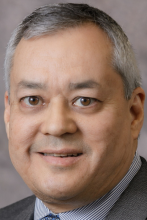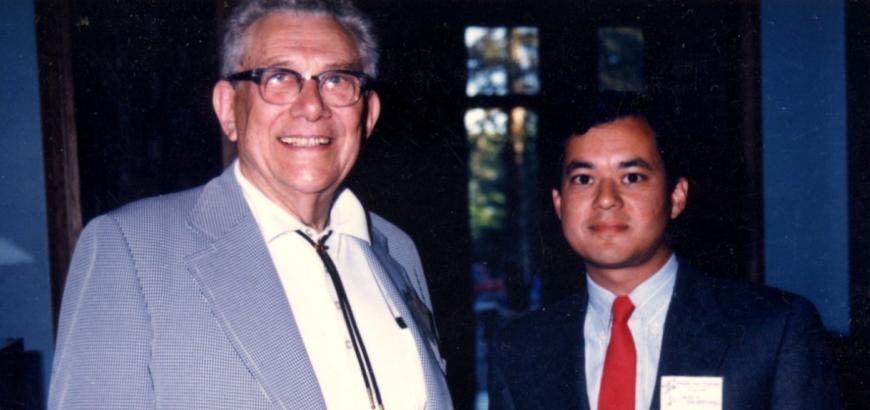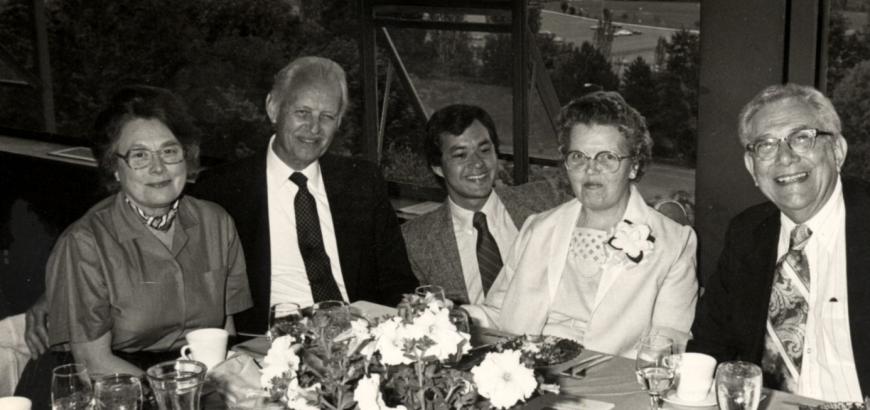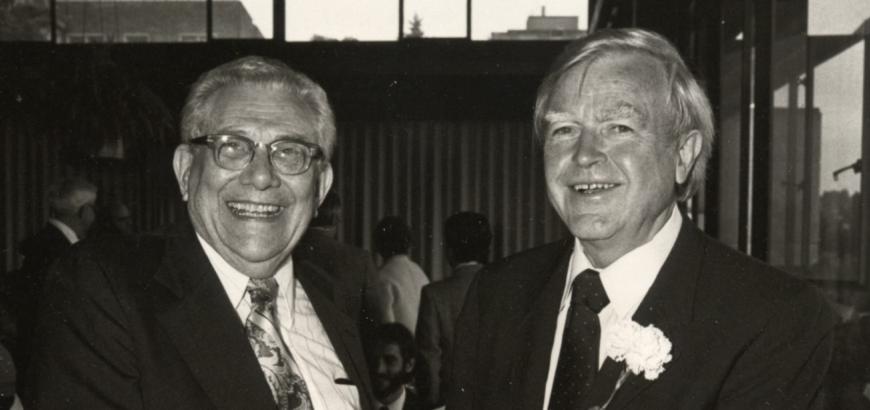Bernard “Bernie” Santarsiero ’80, earned his Ph.D. from the University of Washington in 1980, where he worked with crystallography pioneers Professors Edward C. Lingafelter and Verner Schomaker. His postdoctoral training included work as a Myron A. Bantrell Research Fellow in Chemical Catalysis with Professors Dick Marsh, Harry Gray, John Bercaw, and Bob Grubbs at Caltech where he was also Director of the X-Ray Laboratories in Chemistry and Chemical Engineering, Deputy Master of Student Houses, and Freshman Chemistry Czar. Subsequently, he joined Professor Mike James’ group in Biochemistry at the University of Alberta and was also the X-Ray lab director in Chemistry there and was a visiting scholar in the Department of Chemistry at the University of California, Berkeley, a visiting investigator in Molecular Biology at the Scripps Research Institute, and Director of Structural Genomics at the Genomics Institute of the Novartis Research Foundation. Bernie was one of four co-founders of Syrrx, a company based on robotics instrumentation to accelerate protein structure determination developed while at the Lawrence Berkeley National Laboratory, and later sold to Takeda Pharmaceuticals in 2008. Bernie joined the University of Illinois Chicago (UIC) in 2000 as a visiting X-ray specialist and was promoted to his current position as research professor in 2003. Concurrently, he was associate director in four units: Translational Technology, the Center for Structural Biology, the UICentre for Drug Discovery, and the UI Health Biorepository.
Bernie is a dedicated advocate for diversity and inclusion in STEM and has made significant contributions to the University of Illinois Chicago (UIC) and the broader scientific community. In his role as director of research initiatives in the Offices of Diversity, Vice Chancellor for Research, and the Graduate College at UIC, Bernie has played a pivotal role in establishing several new programs that support historically underrepresented undergraduate and graduate students, postbaccalaureate students, and faculty as well as garnering various institutional awards like the NIH Institutional Excellence in Diversity, Equity, Inclusion, and Accessibility in Biomedical and Behavioral Research Prize. This $100,000 award recognized UIC's efforts to support underrepresented groups in STEMM (science, technology, engineering, math, and medicine) fields through innovative programs such as:
- Latin@s Gaining Access to Networks for Advancement in Science (L@s GANAS): Supporting Latinx students in STEM.
- Bridge to Faculty: Helping postdoctoral scholars from underrepresented backgrounds secure tenure-track positions.
As a gay Latino scientist, Bernie is passionate about creating an inclusive and safe environment for all scientists. His dedication is evident through his mentorship in the L@s GANAS and Bridge to Faculty programs as well as his leadership of the DuSable Scholars Program for Black and Native American students and the NIH-funded Portal to Biomedical Research Careers Postbaccalaureate Research Education Program (PBRC/PREP) for underrepresented minority groups. These data-driven efforts contribute to the retention and success of diverse students in academic and research environments.
Along with the NIH DEIA Prize, Bernie helped UIC garner the Higher Education Excellence in Diversity (HEED) Award and the Inclusive Excellence Award from the National Association of Diversity Officers in Higher Education (NADOHE) in 2021. More recently, Bernie was individually honored with a Diamond Award from the Not Alone Foundation, which he received at a ceremony held at Morehouse College on January 27, 2024.
Bernie further displays his advocacy for LGBTQ+ participation in STEM through his feature on “500 Queer Scientists,” a visibility campaign showcasing LGBTQ+ role models in STEM. This platform aims to ensure that the next generation of LGBTQ+ scientists does not feel alone and fosters opportunities for networking within the scientific community.

As a research professor in the Department of Pharmaceutical Sciences at UIC, Bernie has published numerous articles on natural products and structural biology to advance drug discovery and development. In addition to his leadership in URM program initiatives at UIC, he is affiliated with the Pharmacognosy Institute and Honors College.
In March 2024, we were delighted to welcome Bernie back to the University of Washington. During his visit, he engaged with leadership at the department, college and university levels, sharing his insights on addressing equity gaps through systemic changes. It was also a joy to reminisce about his time at the UW. Department Chair Munira Khalil has greatly appreciated the ongoing conversations with Bernie, discussing how to advance diversity, equity, inclusion, and accessibility (DEIA) in the UW Department of Chemistry.
Beyond his willingness to be a resource for the chair and offer his expertise in DEIA, we are honored to announce that Bernie has pledged a legacy gift of $2M to the Natt-Lingafelter Endowed Fund in Chemistry and the Schomaker Endowed Fund in Chemistry. The Schomaker Fund may be used at the discretion of the chair to further the research mission of the Department of Chemistry. The Natt-Lingafelter Fund may be used as a professorship, fellowship, or as discretionary funding to be used by the chair. Bernie’s bequest, in memory of his two graduate school advisers, Ed Lingafelter and Verner Schomaker, will have a lasting impact, ensuring that the department continues to thrive and innovate in the years to come.


